Aerospace Lessons-Learned
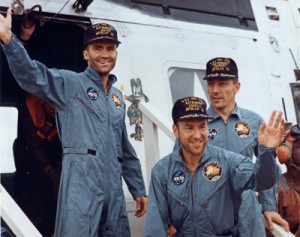 The Aerospace Lessons-Learned (ALL) short course provides participants with the key knowledge, understanding and insight required to effectively apply a myriad of hard-won lessons-learned gleaned over the last half-century of aerospace history. This program helps individuals and organizations avoid the costly and often tragic mistakes of the past and increases the likelihood of success now and in the future.
The Aerospace Lessons-Learned (ALL) short course provides participants with the key knowledge, understanding and insight required to effectively apply a myriad of hard-won lessons-learned gleaned over the last half-century of aerospace history. This program helps individuals and organizations avoid the costly and often tragic mistakes of the past and increases the likelihood of success now and in the future.
Professionals in the modern global aerospace market ply their trade in an era that demands that they do more, in less time and with fewer resources than preceding generations. With optimistic schedules and tight budgets, today’s programs cannot tolerate even minor deviations without facing the threat of cancellation. Ignorance of past lessons-learned leads to unwise decisions and unacceptable reinventing-the-wheel excursions. As such, an awareness and retention of hard-won aerospace lessons-learned is absolutely vital for success.
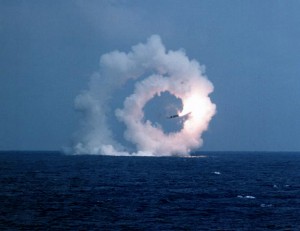 This valuable course stresses the critical importance of learning and retaining knowledge gained through past endeavors. Material focuses on significant historical events and mishaps; special emphasis is placed on what worked, what did not work and why.
This valuable course stresses the critical importance of learning and retaining knowledge gained through past endeavors. Material focuses on significant historical events and mishaps; special emphasis is placed on what worked, what did not work and why.
Learning is accomplished through the medium of case history presentations which consider the background, root causes and abiding lessons-learned pertinent to a host of historically-significant events. These vital lessons-learned are technical, managerial, operational and cultural in nature. For added knowledge integration, each major case history presentation is followed by a formal class discussion.
Save
- Hubble Telescope Flaw
- Galileo HG Antenna Anomaly
- Submarine Thresher Loss
- Gimli Glider Incident
- X-43A Launch Vehicle Mishap
- Apollo 13 Cryo Tank Explosion
- USS Forrestal Fire
- X-2 Speed Mission Mishap
- Nedelin Disaster
- X-15 Reentry Mishap
- Apollo 1 Fire
- Space Shuttle Challenger Disaster
- Space Shuttle Columbia Loss
- Concorde Airliner Disaster
- Mars Climate Observer Loss
- Genesis Entry Vehicle Mishap
- XB-70A Valkyrie Collision
- Palomares Broken Arrow Incident
- NF-104A Zoom Flight Mishap
- Delta II Launch Vehicle Explosion
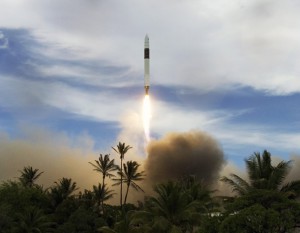 The Aerospace Lessons-Learned (ALL) short course is an intensive 4-day training program that provides a maximum training experience to aerospace professionals with minimum time away from work. The course consists of a diverse collection of case studies, each of which focuses on a historically significant mishap or event. The formal presentation of each case study is followed by a class discussion period. This unique presentation-discussion format maximizes knowledge transfer within and interaction between the group of course participants.
The Aerospace Lessons-Learned (ALL) short course is an intensive 4-day training program that provides a maximum training experience to aerospace professionals with minimum time away from work. The course consists of a diverse collection of case studies, each of which focuses on a historically significant mishap or event. The formal presentation of each case study is followed by a class discussion period. This unique presentation-discussion format maximizes knowledge transfer within and interaction between the group of course participants.
Aerospace Lessons-Learned Course Format
1. Formal Presentation
Each case study presentation consists of the following five (5) components:
- Background: This section both introduces the topic and provides context for a given study. Course participants are placed in the historical setting of what preceded the mishap or event to better understand the associated when-where-how-why aspects of same.
- Mishap: This section provides a factual and objective description of the mishap or event. Where possible, a chronology or timeline detailing the sequence of sub-events is provided. Key elements and participants are identified and explained as well.
- Causes: The causes of the mishap or event are explicitly identified. These include proximate, contributing and root causes. To the maximum extent possible, reference is made to the official mishap investigation report if such exists.
- Lessons-Learned: This is the “punch line” or “take-away message” portion of the case study. Enduring lessons-learned are summarized and explained. Lessons-learned are technical, procedural, operational, managerial and cultural in nature.
- Summary: Provides an overall wrap-up of the topic considered. Summarizes the long-term and historical ramifications of the mishap or event. As appropriate, lessons-not-learned and lessons-forgotten are identified as well.
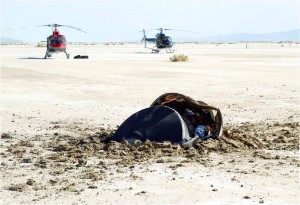 2. Class Discussion
2. Class Discussion
The class discussion period following each major presentation gives course participants the opportunity to talk and ask questions about each topic. Importantly, course participants can weigh-in with their own knowledge and experiences thereby reinforcing and expanding the information highlighted in the formal presentation. This rich learning environment helps optimize the knowledge and insight each course participant takes-away from the course.
Save
This course is best suited for individuals with an interest in aerospace history, systems engineering, flight safety, or flight test.
General Requirements
- Background in aerospace engineering , the flight sciences or other technical disciplines.
Suggested WEA Preparatory Courses
- There are no additional educational requirements for this course.
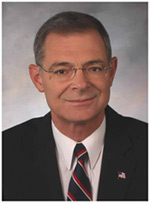
J. Terry White terry@whiteeagleaerospace.com Curriculum Vitae
J. Terry White is the founder, senior advisor and former president of White Eagle Aerospace. His 50 years of professional aerospace experience includes the NASA Space Shuttle Program, NASA X-43A Flight Research Project, and the United States Navy STANDARD Missile Program. During his far-ranging professional career, Terry has served on the engineering technical staff of Rockwell International, General Dynamics Corporation, Hughes Missile Systems Company, NASA Dryden Flight Research Center and Raytheon Missile Systems. In addition, he has served as an engineering consultant to numerous corporate and private aerospace enterprises.
Terry is a subject matter technical expert in the disciplines of aerodynamics, 6-DOF aerodynamics models, aerothermodynamics, hypersonics, flight simulation, and flight testing.
Terry previously served as manager of the Aerodynamics Department in the Guidance, Navigation, and Control Center at Raytheon Missile Systems in Tucson, Arizona. In this capacity, he was responsible for all aerodynamics work performed at the world’s largest tactical missile producer. He concluded his career with Raytheon in 2010 as a Senior Engineering Fellow in Aerodynamics.
Terry has authored more than 180 technical papers on a wide variety of aero-science and aerospace subjects. His teaching credentials include 15 years as an instructor in the Aerospace Engineering Department of the California State Polytechnic University, Pomona, 10 years as an instructor in the professional development program at Raytheon and 17 years developing and teaching technical courses at White Eagle Aerospace. Those who have taken Terry’s courses say that he brings an extensive technical knowledge and uncommon instructional skill to the training environment.
Terry is particularly well-known for his inspiring aerospace history presentations, which are intense, technically relevant reviews of significant events in United States aerospace history. He has lectured extensively on aerospace history topics at the USAF Test Pilot School, the Society of Experimental Test Pilots, the National Aeronautics and Space Administration, the American Institute of Aeronautics and Astronautics, academia and industry.
Terry and his wife Phyllis reside in Oro Valley, Arizona. They are the happy parents of five remarkable children and the grateful grandparents of nine delightful grandchildren.
We provide on-site short courses for businesses and government organizations. Individuals who wish to attend a course should contact us here.
